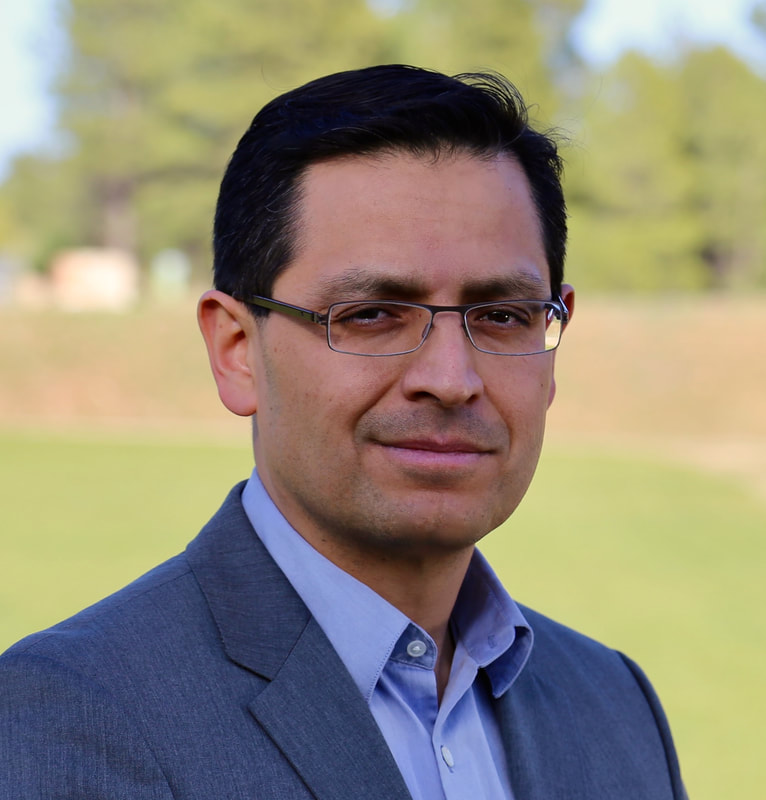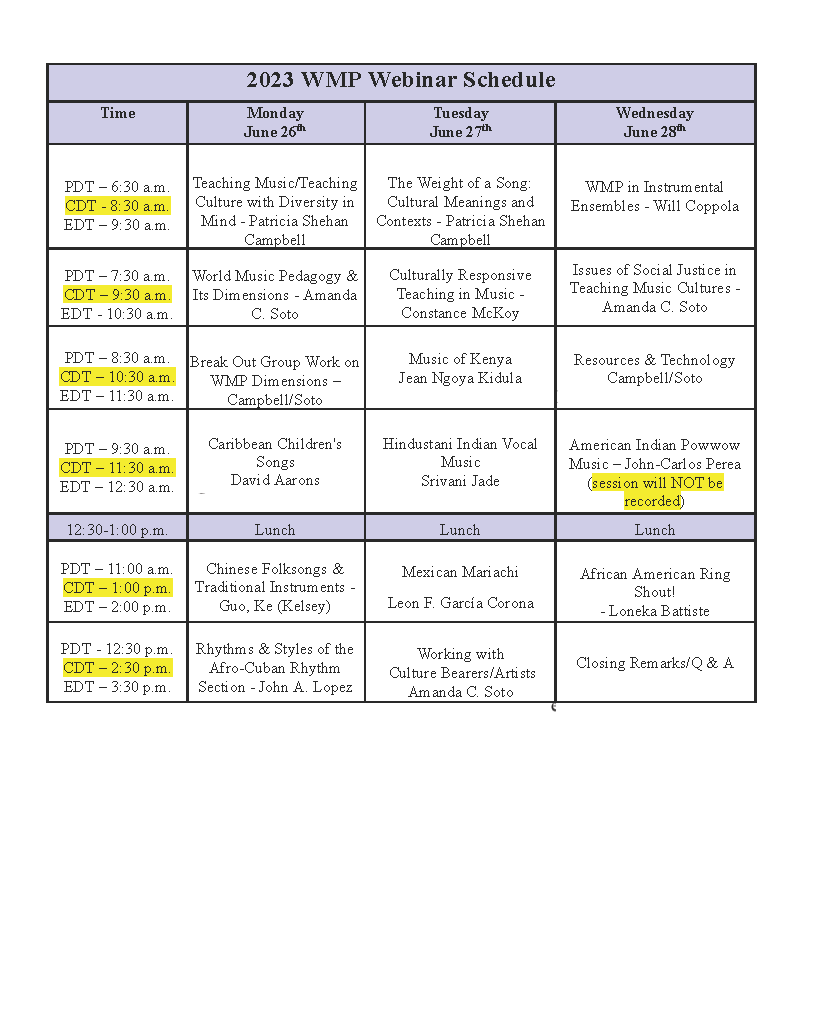Course Description
Join ethnomusicologists, educators, traditional artists, and culture-bearers in the course,World Music Pedagogy: Teaching Music/Teaching Culture. We are featuring a three-day webinar course (June 26-27-28) and one in-person courses (June 19-23 at Texas State University). Participants can choose to enroll in one or several of these courses, depending upon their own time and interest.
With multiple music and pedagogy sessions in each of the courses, participants will explore the application of diversity issues for their relevance to teaching music to children and youth in elementary and secondary schools. Course sessions will lead to the development of teaching/learning content and process via the five dimensions of World Music Pedagogy, with attention to cultural histories, contexts, and sensibilities. By stepping up attention to *culture*, the musical education of all children and youth in general music classrooms, choral and instrumental ensembles, and various other school courses can emphasize both musical and cultural understandings. This webinar will advance understandings while inviting an open exchange on questions of music, education, and culture.
* Course participants will hear from/dialogue with a diverse faculty online whose specializations include topics of (a) teaching the world’s musical cultures (WMP), (b) matters of social justice and music education, (c) issues pertinent to culturally responsive teaching and culturally sustaining pedagogies in music, (d) cultural histories, contexts and meanings of songs, rhythms, and instrumental works of many cultures, and (e) pedagogical styles and strategies that meet the needs of learners of various experiences.
* Excursions into a variety of the world’s musical cultures—local American *and* global--will be backed by recommendations for resources (mediated audio, video, and print material and “human” vis-à-vis culture-bearers) and pedagogical ways of attaining deeper experiences for learners of music and culture.
* Discussions will ensue on questions of music and race, indigeneity, gender and sexuality, and social activism, as well as developmentally appropriate music that fits the needs of learners from early childhood, through elementary and secondary school, and into post-secondary school settings.
* The course fee is inclusive of all sessions, plus course preliminaries or follow-ups via exchanges between participants and course faculty, along with vetted resources to be recommended for teaching/learning include recordings, video-recordings, websites, print material, and locally living culture-bearers who enhance and enrich learning of music and culture. Webinar course will be delivered through Zoom Video Conferencing with resources and recordings housed on a Canvas Project site. Recordings and resources will be available for a full year.
Documentation of course participation and proficiency will be offered by course faculty in collaboration with Smithsonian Folkways Recordings.
With multiple music and pedagogy sessions in each of the courses, participants will explore the application of diversity issues for their relevance to teaching music to children and youth in elementary and secondary schools. Course sessions will lead to the development of teaching/learning content and process via the five dimensions of World Music Pedagogy, with attention to cultural histories, contexts, and sensibilities. By stepping up attention to *culture*, the musical education of all children and youth in general music classrooms, choral and instrumental ensembles, and various other school courses can emphasize both musical and cultural understandings. This webinar will advance understandings while inviting an open exchange on questions of music, education, and culture.
* Course participants will hear from/dialogue with a diverse faculty online whose specializations include topics of (a) teaching the world’s musical cultures (WMP), (b) matters of social justice and music education, (c) issues pertinent to culturally responsive teaching and culturally sustaining pedagogies in music, (d) cultural histories, contexts and meanings of songs, rhythms, and instrumental works of many cultures, and (e) pedagogical styles and strategies that meet the needs of learners of various experiences.
* Excursions into a variety of the world’s musical cultures—local American *and* global--will be backed by recommendations for resources (mediated audio, video, and print material and “human” vis-à-vis culture-bearers) and pedagogical ways of attaining deeper experiences for learners of music and culture.
* Discussions will ensue on questions of music and race, indigeneity, gender and sexuality, and social activism, as well as developmentally appropriate music that fits the needs of learners from early childhood, through elementary and secondary school, and into post-secondary school settings.
* The course fee is inclusive of all sessions, plus course preliminaries or follow-ups via exchanges between participants and course faculty, along with vetted resources to be recommended for teaching/learning include recordings, video-recordings, websites, print material, and locally living culture-bearers who enhance and enrich learning of music and culture. Webinar course will be delivered through Zoom Video Conferencing with resources and recordings housed on a Canvas Project site. Recordings and resources will be available for a full year.
Documentation of course participation and proficiency will be offered by course faculty in collaboration with Smithsonian Folkways Recordings.













